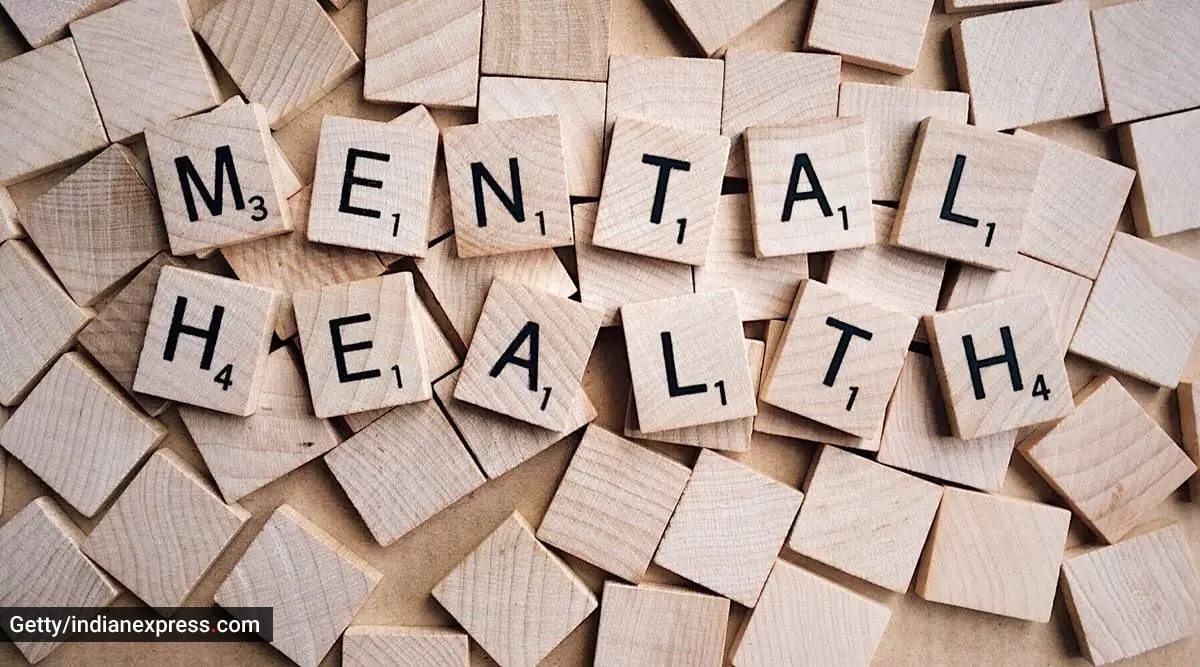- India
- International
Mental health: When is the right time to seek help?
"Considerations, such as misinformation, time constraints, or tight finances can often colour one's decision to consult a psychologist, psychiatrist, therapist, or another expert," said Debasmita Sinha, a psychologist
 When should one seek therapy and mental health help? (Source: Getty/Thinkstock)
When should one seek therapy and mental health help? (Source: Getty/Thinkstock)Of late, while many celebrities and sportspersons have come forward to share their struggles with mental health, the topic still is not as freely discussed as physical well-being.
Agreed Deeksha Athwani, consultant clinical psychologist, Fortis Hospital Mulund, and said that this “stems from major misconceptions surrounding mental health, including that therapy is only for people with mental illness, or that those going for therapy are too weak to handle their problems on their own.”
But, why is seeking help stigmatised?
 Time to think mental health (representative) (Photo: Getty Images/Thinkstock)
Time to think mental health (representative) (Photo: Getty Images/Thinkstock)
For those who have never sought professional help to manage mental health, taking the first step can be tough. This is because seeking help for a mental issue isn’t a chartered territory — “they aren’t obvious like physical issues”.
“It’s actually very normal for people to have doubts like: ‘am I making a big fuss about a minor issue?’, ‘is this even an actual problem?’ or even ‘what would my family/friends think if they knew I was in therapy?’ Other considerations such as misinformation, time constraints, and tight finances can also colour one’s decision to consult a psychologist, psychiatrist, therapist, or another expert,” said Debasmita Sinha, psychologist and clinical director, Manah Wellness.
What are the warning signs?

Feeling bogged down, at times, is a normal part of life. But, if the feeling persists with you also “feeling sad, empty, hopeless, irritated, frustrated, angry for no reason, loss of interest or pleasure in daily activities, and have sleep problems, lack of energy, poor appetite, unexplained weight loss or weight gain, agitation or restlessness, poor cognitive health, self-blame, suicidal thoughts, unexplained problems such back pain or headaches, then you must schedule an appointment with a mental health professional,” stressed Dr Sonal Anand, psychiatrist, Wockhardt Hospitals, Mira Road.
Other signs of hidden depression could be excessive use of smoking/alcohol, or drugs, she added.
“Sometimes, your senses can cause confusion and make you feel out of touch with reality. One may even have episodes of hallucinations and delusions in cases of psychosis. Do not neglect these symptoms and speak to an expert who can help you to overcome the problem,” explained Dr Anand.
The thumb rule is early detection as it gives you better chances of managing the issue and also speeds up recovery, even if the problem is not “disruptive enough to interfere with your daily functioning or your professional responsibilities”. “However, they do indicate that something needs attention. Another sign you must not ignore is being unable to cope with a difficult life event. Seeking professional support at the outset can cushion the emotional shock and prepare you to deal with the distress accompanying these events,” Sinha told indianexpress.com.
Buy Now | Our best subscription plan now has a special price
Some examples of such events include
– the loss of a loved one
– a divorce or relationship ending
– a stressful relocation or a new project
– undergoing physical or mental assault
– calamities or accidents
Why some people delay seeking professional mental help
According to Sinha, following are some common doubts people have about seeing a mental health professional, which can delay their treatment process
“I don’t want others to know I am seeking counselling/therapy”
Social stigma about mental illness is a result of low awareness. Fortunately, this is changing and society is gradually becoming more accepting of the reality of mental health illnesses. Every Indian citizen, by law, enjoys the right to good health (including mental health) and the right to access quality mental healthcare services. Such services are mandated to be totally confidential so that patients’ privacy is not compromised.
“I don’t need an outsider to fix my problems”
When you need surgery or some other kind of specialised treatment, you go to a doctor who is trained in that specific condition. Similarly, a mental health expert is trained to deal with the different determinants of mental health, and could help you overcome your issue in a systematic and holistic way.
 Uncertainty has been one of the root causes of stress at all levels. (Source: Getty Images/Thinkstock)
Uncertainty has been one of the root causes of stress at all levels. (Source: Getty Images/Thinkstock)
“I don’t have the time/money for mental health counselling/therapy”
Taking out time to address emotional issues helps you in the long run because it prevents the distress from snowballing further, which could further prolong treatment and recovery time. If your budget is what’s holding you back, there are plenty of free or affordable therapy platforms out there.
Why seeking help is essential
If you have faced any traumatic events or are feeling emotionally let down for a long time, it’s best to proactively seek help from a mental health professional. You could, of course, speak to a close family member, friend, or your family doctor as a first step if that makes you comfortable. However, a trained expert is more likely to be able to deal with your specific condition better as she/he can help you process the difficult events, understand how they affect you, and ensure a healthy, possibly difficult experience, Sinha said.
What happens in a therapy setting?
A therapy session can act as a soft cushion to fall on at times of extreme distress, said Dr Kedar Tilwe, consultant-psychiatrist, Fortis Hospital Mulund and Fortis Hiranandani Hospital, Vashi.
“A therapy session provides a person with a safe space to talk about their concerns or problems while the therapist provides a listening ear, while being empathetic, and validates their thoughts in an understanding way. During a therapy session, a person may talk about their current stressors and how they feel about them while the therapist uses her expertise to help them manage and cope with these issues,” Dr Tilwe said.
In the first few sessions, the patient and psychologist generally discuss the detailed history of the person, establish a rapport, formulate a diagnosis, and agree on the management plan. If necessary, a recommendation for psychological assessment to gain better understanding of a person’s psychological dynamics may be made, and in case of severe symptoms medicines may be suggested where appropriate, Athwani said.
“The second phase of the therapy session focuses on generating a better insight into the person’s thought process, understanding their emotions, and implementing behavioural exercises, thought experiments and relaxation techniques depending on the type of therapy. Therapy usually ends when both the client and therapist are satisfied with the person’s ability to handle their mental health concerns in an effective and healthy manner while establishing support systems that they can rely on in the future,” Athwani added.
Athwani said many a time, a therapy session could help be an “adjunct to medicines”. “Therapy sessions can help an individual cope with feelings and symptoms and, most importantly, change behavioural patterns that may contribute to the illness. Depending on the severity of mental health issues, therapy can be the main line of management or can be used as an adjunct to medicines,” she said while listing ways in which such sessions can help.
– Understand your illness
– Define and reach specific wellness goals
– Overcome fears or insecurities
– Cope with stress
– Make sense of past traumatic experiences
– Separate your true personality from the mood swings caused by your illness
– Identify triggers that may worsen your symptoms
– Improve relationships with family and friends
– Establish a stable, dependable routine
– Develop a plan for coping with crises
– Understand why certain things bother you and what you can do about them
– End destructive habits such as drinking, using drugs, overspending etc
Which kind of mental health professional can help you?
Sinha decodes different kinds of mental health professionals depending on your requirements
Counselling/Clinical psychologists
These professionals will have, at least, a Master’s degree in psychology. They are trained to identify mental health conditions, perform psychometric assessments, and treat the conditions using psychotherapy. Professionals with an MPhil in clinical psychology can diagnose people as well.
Guidance counsellors
These are people with diplomas in counselling or specific conditions and can provide guidance and counselling in areas like education, marriage, or career. They usually do not identify or diagnose conditions beyond their area of knowledge.
Mental health social workers
These individuals have a Master’s in social work, with a specialisation in mental health. They provide support, and first aid, and work as a part of communities or social impact organisations.
Psychiatrists
These are medical doctors, with an MD or a Diploma in Psychiatry. They are trained to diagnose and prescribe medication to patients. They may or may not be trained in psychotherapy.
Psychotherapists
These are clinical or counselling psychologists who have received additional training beyond basic psychotherapies. Usually, they will specialise in one or more forms of psychotherapy.
“All these professionals do not work in isolation. Since patients may need a combination of medication, counselling, or therapy, it’s quite common for psychiatrists, psychologists and psychotherapists to work in close coordination, to create the optimal treatment plan for the person,” Sinha said.
📣 For more lifestyle news, follow us on Instagram | Twitter | Facebook and don’t miss out on the latest updates!
More Lifestyle
Apr 18: Latest News
- 01
- 02
- 03
- 04
- 05


































